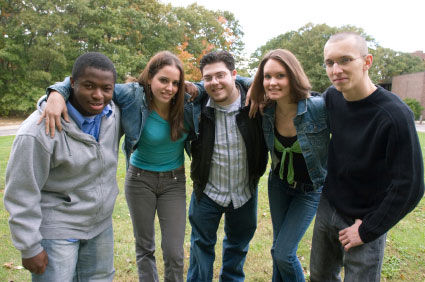College Admissions
Guide to Saving for College
Saving For College
529 College Savings Plan
Investing for College
Baccalaureate Bonds
Treasury Bonds
College Preparation
High School Students
Test Taking
Exams Overview
Background info
The ACT Test
ACT Testing Tips
The SAT Test
SAT Testing Tips
PSAT
College Search
Finding a School
Best College for You
Types of Schools
Search Aids
Primary Factors
Does Image Matter?
Applications
Application Submission
What Colleges Want
Letters of Recommendation
How to Impress
Finishing Touches
Interviews
Admission Essays
How to Write an Essay
How to Choose a Topic
Outline Tips
Edit Structure
Edit Style
What to Study
Campus Tours
College is a brave new world, and the unprepared student faces many disadvantages. Most high schools provide some degree of college prep, but being ready for college requires more than a few advanced courses and tutorials on filling out admissions applications. Being ready for college is as much a state of mind, as it is an attained level of education.
The best college preparation begins when children are young. Parents can help instill in their children a love of knowledge, and a realization that a college education is both desirable and attainable. By giving their children a positive educational outlook, parents can ensure an easy transition from high school to college. Once a student is in high school, and definite college goals become uppermost in their minds, parents and children can discuss coursework, academic achievement and extracurricular activities with an eye towards planning for college.
Early preparation for college begins with the nurturing of a college-oriented mindset. Students should visualize themselves on a college campus, in a lecture hall or living in a college dorm. Self-affirming images like these have a powerful effect on the way we perceive our goals, and on how we actively pursue them.
Again, parents can help their children embrace this mindset at an early age by talking about college and higher education in very real terms, and as something as something attainable and desirable. Begin talking to your children at an early age, and stimulate their interest with discussions on what they would like to be when they grow up. These conversations can lead to teenagers considering long term educational goals, and to the burgeoning of a college-oriented mindset.

Once a student is in high school, teachers and counselors can play a large part in college preparation. High school counselors are particularly valuable resources when it comes to planning for college. As students make their way through their high school years, they should take advantage of what their high school guidance counselors can offer in the way of advice and information that will make college a real possibility.
Your high school guidance counselor can help you prepare for college in a number of valuable ways including:
Make it a habit to visit your high school counselors regularly, and keep them up to date on your college ambitions. Their advice can help you make the right choices concerning your college career.
Along with regular visits to your high school guidance counselor, begin requesting college application packages early on in your high school stay. Build up a tentative list of colleges and universities you would like to attend, and request admissions packages from them. Familiarize yourself with the application process, and consider what a college application entails so you can plan accordingly. By looking over a few college application forms, you'll get a good idea of any high school coursework you may still need to take. You might also begin thinking about any extracurricular activities you may want to be add to your college applications to help make you more attractive to the admissions board.
The habits you develop in high school will help you adjust to the new demands of college life. Beyond study habits, students need to consider the effects of lifestyle on their educational progress. Here are a few tips to help you prepare for the transition into college life:
With proper preparation, college is a realistic goal for all students. The benefits of a college education go far beyond career and income. College life helps students develop in many intangible ways, giving them a love for knowledge and an inquisitiveness that will serve them well in all of their pursuits. Ideally, parents and students should work together toward the common goal of making college a reality.